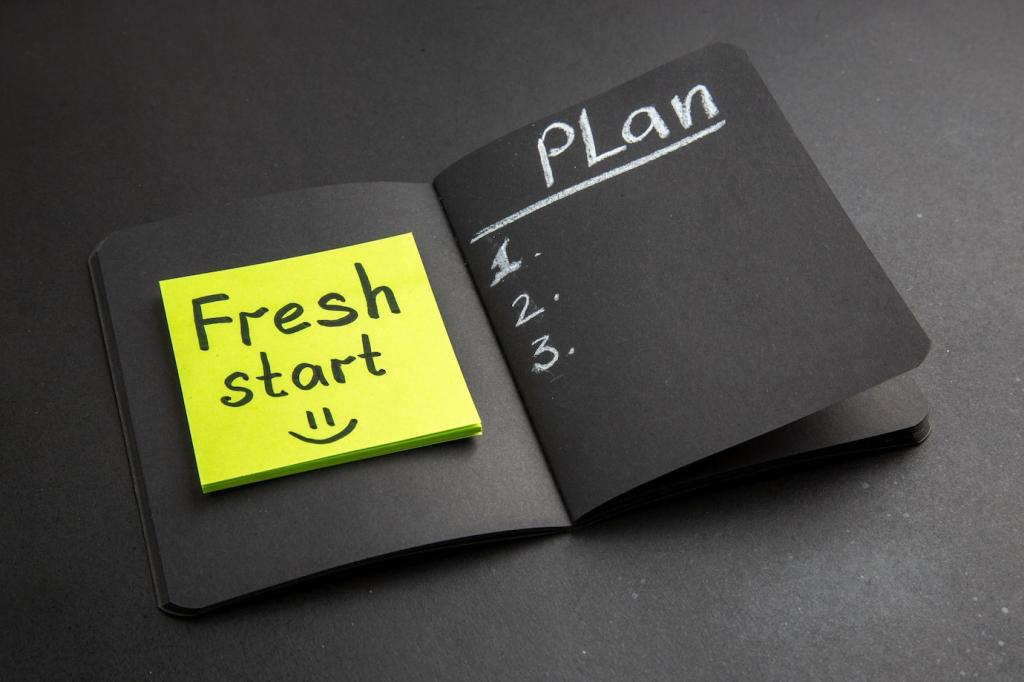
Time Management Skills for Achieving Personal Goals
Chosen theme: Time Management Skills for Achieving Personal Goals. Welcome to a practical, encouraging space where your ambitions meet reliable routines. Explore proven strategies, stories, and tools to align time with what matters most. Share your goals, subscribe for weekly experiments, and let’s build sustainable momentum together.
Define Goals That Deserve Your Time
From Vague Wishes to Specific Targets
Swap daydreams for decisions. Turn “get fitter” into “run a 5K by June,” then map milestones backward. Specific goals anchor your calendar, reduce decision fatigue, and inspire consistent action. Comment with one goal you’ll specify today, and revisit it weekly to track honest, measurable progress.


Why Priorities Protect Your Calendar
Priorities are not wishes; they are guardrails. Rank your top three objectives and schedule them first. When conflicts arise, your priorities act like a compass, guiding choices without guilt. Share how you rank yours, and subscribe for a printable priority planner to practice daily alignment.
Time Blocking Without the Burnout
Group related tasks into protected blocks and add recovery buffers between them. This pace respects human energy and prevents spillover. Start with just two deep-focus blocks tomorrow. Share your first schedule draft below, and follow for templates that keep blocks realistic and humane.
The Two-List Method: Commitments vs. Options
Separate must-dos from nice-to-dos. The commitments list anchors your day; the options list fills gaps without pressure. This reduces overwhelm and prevents overpromising. Post your two lists, and we’ll feature examples that show how separating them restores clarity, confidence, and reliable execution.
Adaptive Planning: Buffers and Realistic Margins
Plans fail not from laziness but from optimism bias. Add 25 percent time buffers to complex tasks, and leave margin before meetings. This habit protects focus when surprises happen. Comment with a task you’ll buffer today, and subscribe for a step-by-step adaptive planning checklist.
Chronotypes and Peak Hours
Identify your natural performance windows—morning larks, night owls, or somewhere between. Schedule demanding work when your mind is sharpest, and save admin for off-peak periods. Share your peak hour and we’ll send a mini-plan to protect it from meetings, pings, and interruptions.
Micro-Rest and Recovery Loops
Short, intentional breaks refuel attention. Try ninety minutes focused, then five minutes of movement or breathwork. Track how recovery affects output and mood. Tell us your favorite micro-rest practice, and subscribe for a science-backed break guide that keeps momentum without exhaustion.
Nutrition and Movement That Support Focus
Stable blood sugar, hydration, and light movement enhance cognitive endurance. Keep water within reach, choose protein-forward snacks, and take quick walks before deep work. Share your energizing routine in the comments, and we’ll compile community-tested habits into a practical, printable checklist.



Protecting Focus in a Distracted World
Make the wrong thing harder: log out of social apps, silence non-critical alerts, and keep your phone in another room. Physical friction reduces impulse checking. Comment with one friction tweak you’ll implement today, and we’ll share a community list of clever, simple barriers.

Protecting Focus in a Distracted World
Set clear expectations with teammates about response times and focus windows. Asynchronous norms protect deep work without compromising collaboration. Propose shared quiet hours. Tell us your team’s agreement experiments, and subscribe for templates to introduce respectful, flexible communication rhythms at work.
Measuring What Matters
Measure progress by outputs, not busyness. Count pages written, workouts completed, or clients served. Tie metrics to weekly reviews for honest feedback. Comment with one outcome metric you’ll track, and follow for a lightweight dashboard you can adapt to your personal goals.


Measuring What Matters
Log your time for three days without judgment. Identify patterns, energy dips, and hidden wins. Audit insights reveal leverage points, not reasons for shame. Share one surprising finding, and subscribe for a gentle audit worksheet designed to encourage curiosity rather than critique.
Resilience and Real-Life Setbacks
When a day explodes, apply RST: Reset expectations, Salvage one priority, Time-box recovery. This simple sequence prevents spiral thinking and restores traction. Share your version of RST, and subscribe for a printable card to keep near your workspace for tough moments.
